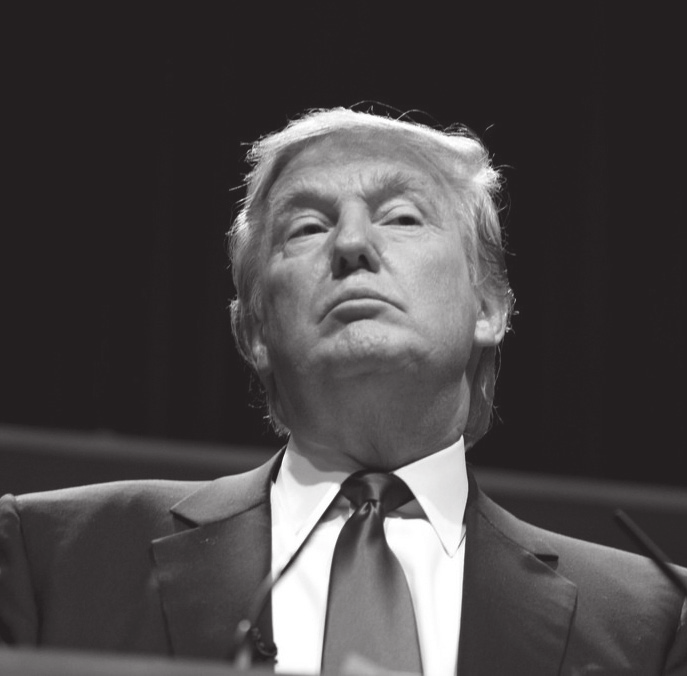
By Karlee Robinson
Donald Trump’s first year as the President of the United States also happens to be his first year in politics. And we can tell.
From his selection of the wealthiest-ever cabinet in U.S. history to his threatening to sue a number of critics throughout his campaign, Trump’s business-oriented approach to politics leaves me fearful of his inability to preserve individual rights.
In a 2016 interview with Business Insider regarding the incredibly high wealth among his cabinet picks (altogether worth at least $13 billion, as reported by the Boston Globe), Trump stated, “I want people that made a fortune because now they’re negotiating with you. It’s no different than a great baseball player or a great golfer.”
So don’t fret. The public can now rest easy knowing that our president equates his role as Commander in Chief with that of a team captain. By believing that “the best” is synonymous with “the greatest negotiators,” Trump has made his priorities clear, continuing to view politics through the lens of business.
Trump’s skewed priorities produced the most financially privileged cabinet in the nation’s history, deepening our government’s tendency to reward those in the upper cl

ass such as Education Secretary Betsy DeVos, whose net worth alone is approximately $5 billion. This ‘business-first’ mentality invades not only the selection of his administrative team, but also our president’s approach to implementing change.
Trump disregards the value of checks and balances by establishing this powerful relationship between politics and money. The president’s financial standing contradicts with the struggling middle-class lifestyle he promised to represent throughout his campaign. How can we expect our president to represent the people when he has so much to benefit from prioritizing those who are already wealthy?
It’s clear that this correlation between one’s political power and monetary wealth is not a novel concept; those who are unable to gather the funds necessary to run a campaigns are limited without consent.
Trump’s presidency thus far has only increased disparity inherent to our political system. By approaching the presidency through the lens of a business tycoon, Trump is worsening the unequal allocation of privilege. He’s more explicitly positioning politics in a financial context in ways additional to those already shamefully inherent to politics.
